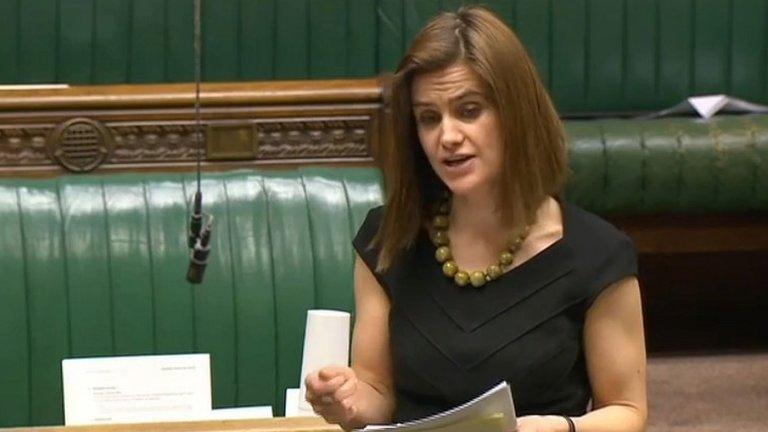Week ahead
- Published
- comments
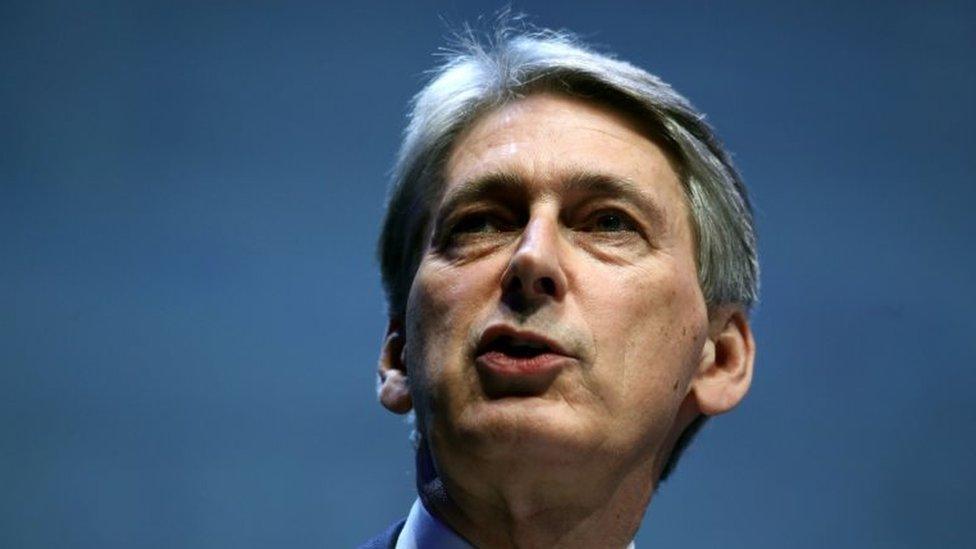
The Chancellor is expected to unveil a carefully unflashy series of financial announcements on Wednesday.
Another week of legislative loose end-tying, with Parliament ticking over, and no votes expected in either the Commons or the Lords.
This is punctuated by the Autumn Statement on Wednesday, which will be pretty much the first major policy event of Theresa May's government.
Just how revealing will it be? What will it say about the new government's policy priorities (and it is a new government); about the relationship between the PM and the Chancellor, which is the jugular vein of any administration; and about the balance of opinion in the Cabinet on Brexit issues?
Elsewhere there are some interesting issues being kicked around - watch Thursday's health inequalities debate, in particular, and some interesting issues will be explored on the committee corridor.
Here's my rundown of the week ahead:
Monday
The Commons opens (2.30pm) with Work and Pensions questions. And, as usual, any post weekend urgent questions or ministerial statements will be taken at 3.30pm.
Then MPs turn to the report and third reading stages of the Higher Education and Research Bill - Labour has a battery of amendments on the student finance side of the bill, including to bring back maintenance grants, which were turned in to loans in the last Autumn Statement, and to take action against retrospective changes to student loan agreements, such as the decision to freeze the repayment threshold at £21,000.
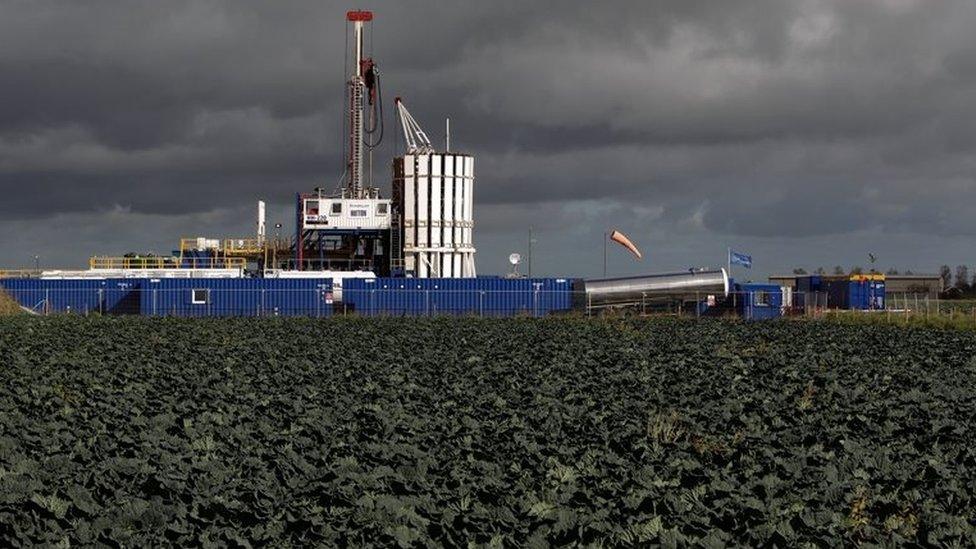
Labour MP Caroline Flint wants to see money from fracking being used to support energy efficiency
In the adjournment debate, the former shadow energy secretary Caroline Flint will be calling for the revenue from the Shale Wealth Fund - a 1% levy on the profits of "fracking" - to be used to promote energy efficiency, essentially using the profits from a fossil fuel to underwrite the shift to green energy.
In Westminster Hall (4.30-7.30pm) there's a Petitions Committee debate on e-petition 132140 , external calling for free childcare. A total of 126,265 people have signed up to the petition, which notes: "Free childcare is in place for two-year-olds where the parents have low income and mostly on benefits and don't work. If the parents are not working then their children don't need childcare. My husband and I work very hard to provide for our family but have to pay huge amount of money for childcare."
My pick of the day's committee corridor action is the Public Accounts Committee hearing on NHS treatment for overseas patients - which will focus on the NHS's performance in reclaiming the cost of treatment from them.
In the Lords (from 2.30pm) the main event is the second day of committee stage debate on the Pension Schemes Bill, where the key issues are all centred around Master Trusts.
That is followed by a short debate led by the crossbench peer, Baroness Meacher, on whether policy changes are planned in response to the call from UN for member states to introduce evidence-based drug policy.
Tuesday
The Commons opens (11.30am) with Foreign Office questions, followed by a ten minute rule bill on providing paid leave for organ donors from Labour's Louise Haigh.
Labour Opposition Day debates are on education and social mobility and on the National Health Service.
In Westminster Hall, there's a Heathrow skirmish - with a debate led by Twickenham MP Tania Mathias on the effect on air quality of proposed Heathrow airport expansion (4pm).
On the committee corridor, the Business Energy and Industrial Strategy Committee goes snark-hunting, (9.30am) with a round table discussion on what industrial strategy actually is, and should be. What should the government's response be to foreign takeovers of key industries, for example. Alex Brummer, City Editor of the Daily Mail, and Paul Kahn of Airbus UK are among the panellists.
And the Justice Committee (at 9.45am) hears evidence from the Lord Chief Justice, Lord Thomas of Cwmgiedd, on his annual report. Will he be asked questions about Article 50 judgment?
In the Lords (2.30pm) after the usual half-hour of questions to ministers, peers debate approval motions on three statutory instruments; firstly on Contracts for Difference; secondly on Environmental-permitting; and thirdly on Fatal accidents and sudden deaths (Scotland).
A piquant occasion since the government lifted the threat of removing their ability to veto SIs. Then they turn to two select committee reports on the process of Brexit: The Invoking of Article 50, external and Brexit: Parliamentary Scrutiny, external - listen carefully for the thud of markers going down as peers seek assurances that there will be proper parliamentary scrutiny of the myriad of decisions involved in leaving the EU.
And then they move onto a third committee report - on Responding to price volatility: creating a more resilient agricultural sector, external.
Wednesday
The Commons opens (11.30am) with Scottish questions, followed at noon by Prime Minister's Questions.
But the major event of the day is the Autumn Statement, from the Chancellor of the Exchequer, Phillip Hammond.
This is his first big Commons set-piece as Chancellor, and most commentators expect a carefully unflashy series of financial announcements, with as much interest in any hints he might let slip about the government's internal Brexit debates as in the financial content.
The shadow chancellor John McDonnell will respond, and after the statement, the independent Office for Budget Responsibility, external - the official economic watchdog - publishes its latest Economic and Fiscal Outlook (EFO).
That will be followed by a ten minute rule motion - the Representation of the People (Voter Proof of Identity) - from MP Chris Green and then by a general debate on Exiting the EU and transport.
Committee of the day is the Brexit Committee hearing (from 9.15am) on different models for a future UK-EU relationship; the witnesses include the Legatum Institute (thought to favour a pretty hard Brexit) and Chatham House, the high priests of foreign policy orthodoxy.
In the Lords (3pm) peers rattle through a series of bills, starting with the third reading debate on the Children and Social Work Bill , where the outstanding issues are social work regulation and the UN Convention on the Rights of the Child.
Then they turn to the Bus Services Bill, where there are issues on whistle-blowers and safety concerns to be resolved. Then there's their final committee stage session on the Wales Bill.
Finally there will be chance for detailed debate on the Intellectual Property (Unjustified Threats) Bill - a Law Commission Bill dealing with the law on groundless threats of infringement proceedings for patents, trademarks and design rights.
Thursday
The Commons opens (9.30am ) with Environment, Food and Rural Affairs questions, followed by mini-question times for the MPs who speak for the Church Commissioners, the House of Commons Commission, the Public Accounts Commission and the Speaker's Committee on the Electoral Commission. Then the Leader of the House delivers the weekly Business Statement setting out what the Commons will debate in the coming week.
The rest of the day is devoted to debates on subjects nominated by the Backbench Business Committee; first there's a motion on reform of the support arrangements for people affected by contaminated blood and blood products and then there's a general debate on a motion on reducing health inequality, led by the Chair of the Health Select Committee, Dr Sarah Wollaston.
This last debate is intended to pick up a point made by Theresa May, when she became PM, that health inequality meant that poorer people died years earlier than richer people. Dr Wollaston adds that poorer people also spend more of their later lives with serious health problems, which has major implications for the NHS as well.
The debate will explore ways of dealing with widening health inequalities and will include calls for the government to stick with the planned sugary drinks tax, in the face of a determined lobbying operation against it.
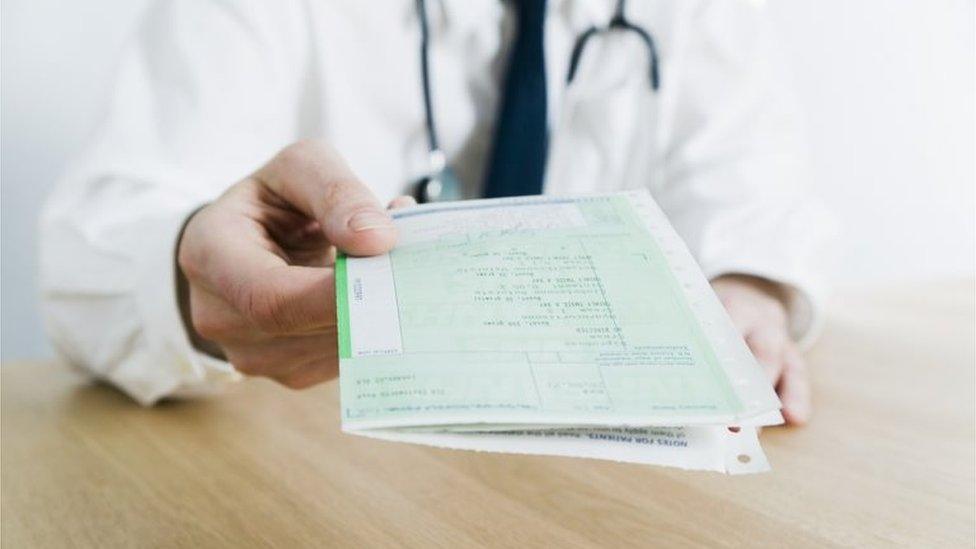
Dr Sarah Wollaston will lead the debate on health inequality
In the Lords (from 11am) there are more debates on subjects chosen by backbench peers - including the now-routine Brexit-related debate.
The first subject is the case for limiting the number and nature of claims against the Ministry of Defence and UK armed services personnel arising out of future armed conflict abroad, led by the former Supreme Court judge, Lord Brown of Eaton-under-Heywood.
Then there's a short debate on the sustainability of rural communities in the light of research showing that subsidised bus services in England have reduced by more than 12% in the past year - the Bishop of St Albans, the Rt Rev Dr Alan Smith, leads.
And the final subject is the implications for the health and social care workforce of the referendum decision, led by Baroness Finlay of Llandaff, a professor of palliative medicine, and a past president of the Royal Society of Medicine.
Friday
It's private members' bill day in the Commons (from 9.30am), where there seems to be a fair wind for the Conservative Gareth Johnson's Awards for Valour (Protection) Bill.
Sometimes called the Walter Mitty Bill, this measure is intended to stop people wearing or displaying medals or insignia awarded for valour, with the intent to deceive. His case will probably be bolstered by what is expected to be a supportive report from the Defence Select Committee, which conducted an inquiry into the bill.
Also on the agenda are the second readings of the Parking Places (Variation of Charges) Bill from the Conservative, David Tredinnick; the Local Audit (Public Access to Documents) Bill from Wendy Morton; the Protection of Family Homes (Enforcement and Permitted Development) Bill from Steve McCabe and the Harbours, Docks and Piers Clauses Act 1847 (Amendment) Bill from Craig Mackinlay.
- Published17 June 2016
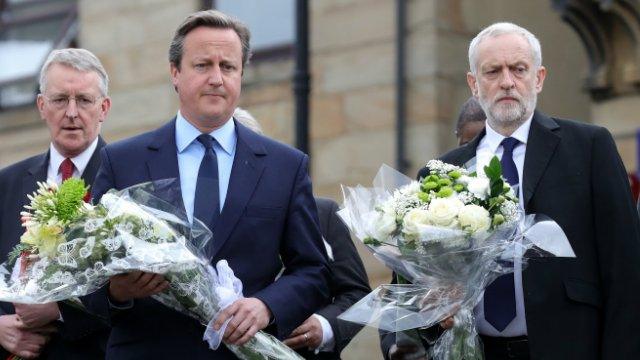
- Published17 June 2016
